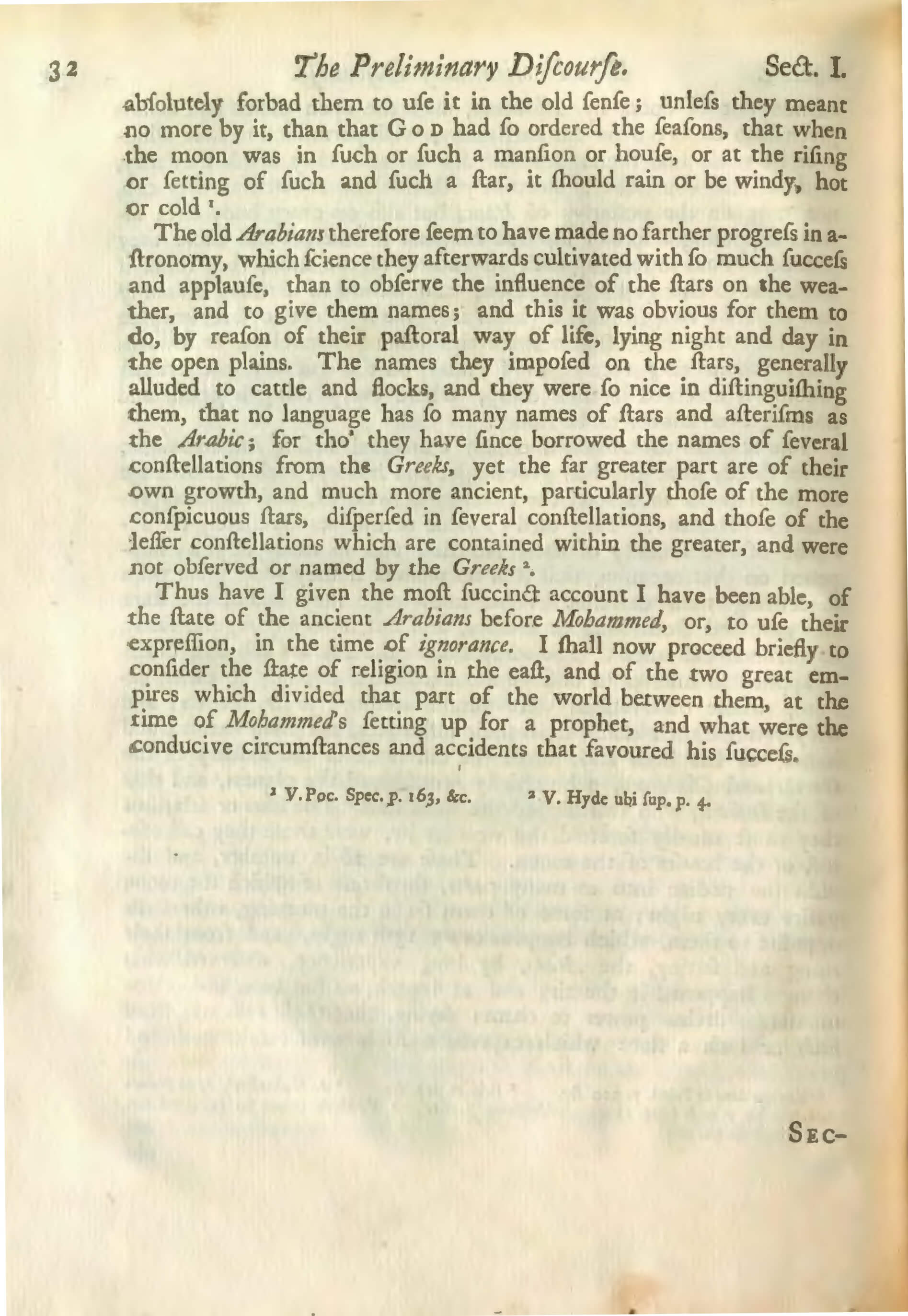George Sale, The Koran, commonly called the Alcoran of Mohammed, translated into English immediately from the original Arabic; with Explanatory Notes, taken from the most approved Commentators. To which is prefixed A Preliminary Discource (1734)
absolutely forbad them to use it in the old sense; unless they meant no more by it, than that God had so ordered the seasons, that when the moon was in such or such a mansion or house, or at the rising or setting of such and such a star, it should rain or be windy, hot or cold 1.
The old Arabians therefore seem to have made no farther progress in astronomy, which science they afterwards cultivated with so much success and applause, than to observe the influence of the stars on the weather, and to give them names; and this it was obvious for them to do, by reason of their pastoral way of life, lying night and day in the open plains. The names they imposed on the stars, generally alluded to cattle and flocks, and they were so nice in distinguishing them, that no language has so many names of stars and asterisms as the Arabic; for tho’ they have since borrowed the names of several constellations from the Greeks, yet the far greater part are of their own growth, and much more ancient, particularly those of the more conspicuous stars, dispersed in several constellations, and those of the lesser constellations which are contained within the greater, and were not observed or named by the Greeks 2.
Thus have I given the most succinct account I have been able, of the state of the ancient Arabians before Mohammed, or, to use their expression, in the time of ignorance. I shall now proceed briefly to consider the state of religion in the east, and of the two great empires which divided that part of the world between them, at the time of Mohammed’s setting up for a prophet, and what were the conducive circumstances and accidents that favoured his success.
1 V. Poc. Spec. p. 163, &c.
1 V. Hyde ubi sup. p. 4.
